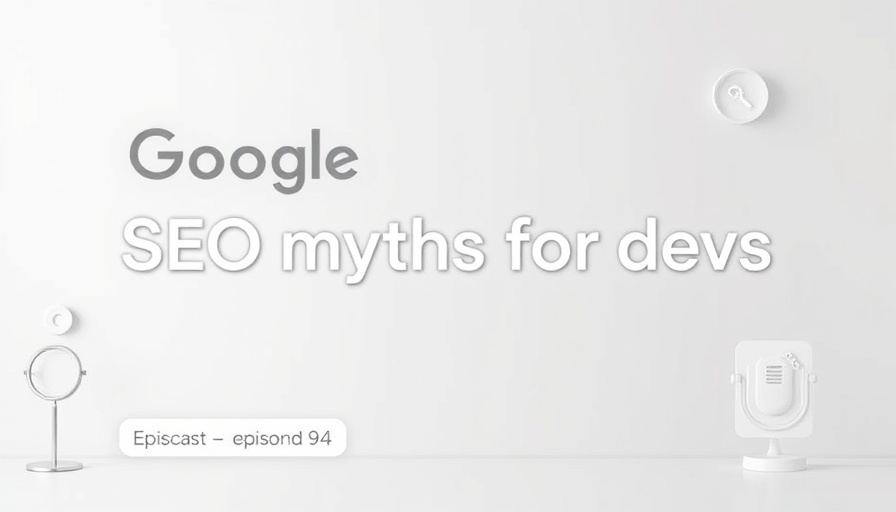
Understanding HTML and Ranking on Google
In a recent discussion on Google's Search Off the Record podcast, it was revealed that many top-ranking websites don’t have valid HTML yet still perform exceptionally well in search results. This challenges the common belief that having perfect code is essential for SEO success.
According to Search Advocate John Mueller, only 0.5% of the top 200 websites passed HTML validation tests. This statistic, drawn from research by former Google webmaster Jens Meiert, indicates that SEO is not solely reliant on technical precision. Instead, it emphasizes the importance of a user-focused strategy.
Why Broken HTML is No Longer a Dealbreaker
Mueller noted that search engines must handle the “broken HTML” present across the web. He stated firmly, “It doesn’t have to be perfect; it'll still work.” This insight is particularly valuable for website owners and entrepreneurs, who often fear that technical flaws could harm their rankings.
Although minor errors can be tolerated, it’s crucial to get certain technical elements, such as metadata, correct. If metadata is inaccurately implemented, it might not help with ranking. GPS-like precision isn’t necessary for visible content, but for search engines, accuracy in these elements is vital.
SEO Isn't Just a Technical Checklist
One key takeaway from the podcast is that SEO is not merely about ticking boxes on a checklist. According to Mueller, there’s a mindset that goes along with effective search strategies. It’s important to consider whether the language used resonates with the potential audience.
Using the right terminology that your customers can relate to often outweighs technical precision. Splitt emphasized that understanding what readers might ask and structuring content around those questions leads to more successful SEO.
Core Web Vitals and Their Misunderstood Impact
Core Web Vitals are another focus area, discussed in detail during the podcast. While they are important, good scores don’t guarantee improved rankings. Mueller explained, “Core Web Vitals is not the solution to everything.” Understanding its role is key; it’s one factor among many that contribute to your overall search engine ranking.
This common misconception can mislead developers and businesses. They often think improving their Core Web Vitals score is a quick fix to achieving better rankings, without realizing other factors contribute significantly to SEO performance.
JavaScript's Role in SEO
JavaScript is an important topic in modern web development and SEO. As Splitt mentioned, Google can process JavaScript, but the way it's implemented matters significantly. He advised that if the content that is important for ranking purposes is rendered well in the HTML, you’re generally good to go.
This point is vital for businesses that heavily rely on dynamic content. Ensuring your JavaScript supports rather than hinders user experience could significantly improve your search rankings.
Actionable Insights for Improving Your SEO Strategy
For companies looking to improve their online visibility, it’s essential to focus less on technical perfection and more on delivering valuable content tailored to user queries. Prioritize the user experience, and ensure your HTML includes valid metadata and relevant keywords.
Understanding user intent and employing a strategic approach, combined with clear, accessible content, will lead to more favorable ranking outcomes. This shift in focus from technical details to user engagement can help demystify SEO for many business owners.
By embracing this new perspective on SEO, businesses can navigate the complexities of search engines more effectively, ensuring they actively engage their target audience.
 Add Row
Add Row  Add
Add 




Write A Comment